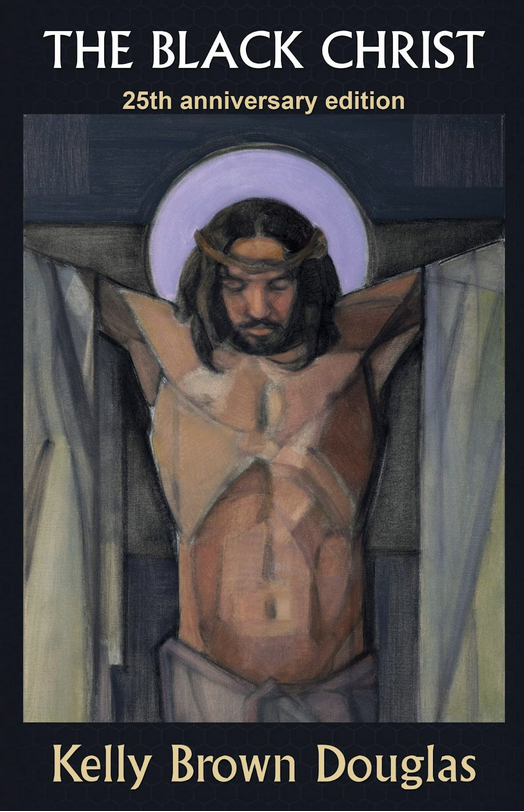The Privilege of Disbelief
Rev. Brandon Wrencher
3/18/20254 min read


Scripture: Psalm 53 (CEB)
Illustration: “God ain’t good all of the time. In fact, sometimes, God is not for us. As a black woman in a nation that has taken too many pains to remind me that I am not a white man, and am not capable of taking care of my reproductive rights, or my voting rights, I know that this American god ain’t my god. As a matter of fact, I think he’s a white racist god with a problem. More importantly, he is carrying a gun and stalking young black men.” – Anthea Butler
“I’m calling for a Christianity whose animating logic is no longer tied to that false ‘god-man.’ The ‘god’ of (or that is) whiteness is a god toward which we must be thoroughgoing atheists and religionless. If Christianity in [America] and in our times is to have a future, it must be a Christianity beyond (the reigning) Christianity (and its god of anti-blackness). It must be a Christianity no longer centered in normalizing whiteness … In short, what is needed is a Christian atheism, a Christianity-after-Christianity, a Christianity beyond itself, a Christianity that plays out on the ground as struggle, that in fact is struggle …” – J. Kameron Carter
Source: Book cover of Kelly Brown Douglas’ classic text The Black Christ
Meditation: During college, I went through the motions of church, but I was a closeted agnostic. My immature faith couldn’t stand up to the big questions with which I was grappling. At the top was the question of theodicy: “How is God all good, loving, and powerful with the existence of ongoing suffering in the world?” Christianity was on trial. Because Christians had cooperated with and been silent about so much ongoing suffering across the world throughout history. Sure, I could point to the love of Jesus, but that felt trifling in comparison to the generations of evil done on the Church’s watch. I buried myself in theological books recommended to me by classmates and professors. I memorized the classical arguments for God’s existence. Intellectually, these books and arguments made sense. But existentially, I’d feel satisfied for a day, maybe two. I was searching for answers that were both intellectually persuasive and existentially satisfying.
I stumbled upon a book by Kelly Brown Douglas called The Black Christ. This was my formal introduction to liberation theology, specifically womanist theology. Douglass exposed my own theological miseducation. The so-called “classical arguments for God’s existence” were the inheritance of white, Eurocentric, dominant class perspectives. It is convenient for those in the dominant class to disbelieve in god when their ancestors, in the name of god, caused terror upon black, brown, and poor folks across the globe. Douglas and other liberation theologians have helped me to judge God-talk and disbelief in god not by people’s words, but by their actions.
The dominant class operates by a theology of concealment, using God-talk and talk about disbelief in god as cover for the false gods they really obey: money, convenience, the presumption of innocence - ultimately the refusal to grow up. White folks, in particular, can no more cast off their Christian supremacist background than they can their whiteness. They, and all those in the dominant class, must grapple with the religion that Jesus practiced, the prophetic faith of love and liberation for the oppressed. And they must contend seriously with the way their people have distorted this prophetic faith. It is a betrayal of intellectual and existential rigor to not take seriously the prophetic faith of the oppressed throughout the ages. To take prophetic faith seriously does not mean a person will believe in God or a higher power, as conventionally understood. It does mean grappling with belief in the power and dignity of the oppressed. And for those with doubts like myself, it means that we find God, indeed the sacred, not in the leap of faith for what is rational to the mind or morally pure to the ego. Instead, we find the sacred in the certainty of struggle, in the decency of striving to keep our promises, in the hope that comes from being in solidarity with the oppressed.
Song: Take Me To The Alley by Gregory Porter
Reflection Questions:
At what times in your life have you doubted the existence of God?
Are there any false gods you need to wrestle to embrace a more liberative path or spirituality?
Call to Practice:
Do some research to find a small Black faith community or non-profit that does impactful work with their wider community. Start with places that are near you geographically, but if you have trouble with that then find something at a distance. By small, I mean not a megachurch or a large staffed non-profit. Small Black faith communities and non-profits are typically very under-resourced and under-appreciated. Make a donation to them and send a note to them to express something specific about their work that you appreciate.
About the Author:
Rev. Brandon Wrencher (he/him) is a senior strategist and organizer, trainer, and consultant at the intersections of decolonizing church, contemplative activism, and community-building. Brandon is the author of: Liberating Church: A 21st Century Hush Harbor Manifesto (Wipf & Stock and The Voices Publishing, 2022), Buried Seeds: Learning from the Vibrant Resilience of Marginalized Christian Communities (Baker Academic, 2022), and “Our Cries for Equity” in The Other Journal: Authority (Cascade Books, 2021).
Stay connected to Brandon:
FB: Brandon Wrencher
These Black Lent devotionals were originally curated by IG: goodneighbormovement.